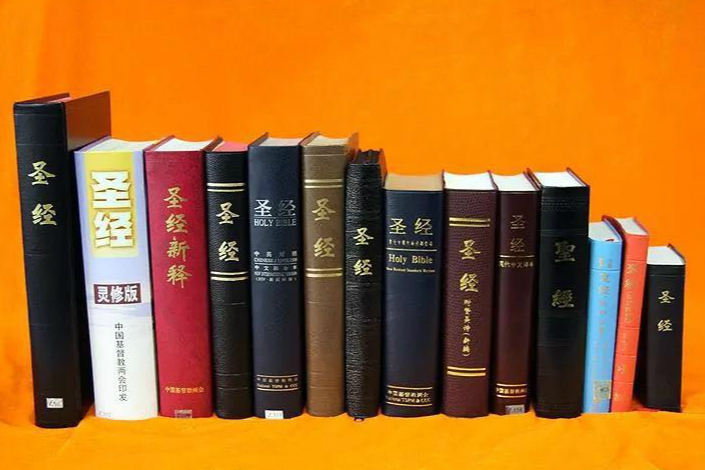A Christian scholar suggested believers read different Chinese translations of the Bible to broaden their horizons.
A Christian scholar called W for short in South China urged that besides the Chinese Union Version (CUV) which is popular among the Chinese Christian community, Christians could also read some other well-translated Chinese Bible versions to broaden their horizons.
The Bible is the most authoritative religious scripture for Christians. The Chinese Union Version of the black leather bound and the red edge is the most widely used Chinese Bible translation.
He said, "There are different types of translations of the Chinese Bible. When we read other translations of the Bible which bring new vitality to the indigenization of theological education, we can better understand the Bible and God. "
Chinese Christians have deep emotional memories of CUV
W has the habit of reading kinds of books and consulting different versions of the Bible. He shared the importance of CUV which is the most commonly used Chinese translation. During the General Conference of Protestant Missionaries in Shanghai in 1890, it was proposed to translate the “Union Version” of the Chinese Bible into three languages-high Wenli or classical Chinese, easy Wenli (Wenli was a language of the Chinese classic), and Mandarin. The easy Wenli New Testament (NT) was published in 1904. Two years later, the deep Wenli NT and Mandarin NT were published. In 1919, they published the Wenli Union Version and Mandarin Union Version, the latter of which becomes CUV now.
In fact, in the past 100 years or so, no translation has been able to completely replace the CUV, though some of CUV’s nouns or grammatical methods are not widely used today. Even though some other versions may be also excellent, many Chinese Christians copied the CUV when it was rare and difficult to gain. The collective memory of Chinese Christians would not be easily lost due to historical reasons and emotional reasons,
There is an increasing need to access and read different versions of the Bible in Chinese.
But at the same time, due to the constant changes in different cultural backgrounds, it is necessary for the Christian community to come into contact with multiple versions of the Bible for reading.
W said that in addition to the CUV (Shangdi’s Edition and Shen’s Edition), the current mainstream versions are the revised version of the Contemporary Translation of the Bible, the New Translation of the Bible, the Chinese Standard Version, and Scotus Chinese Version which is an important Chinese edition of Catholic Church’s history. They are all worth reading to savor the subtle refinement in translation
Besides the New Translation of the Bible and the New Living Translation Version Bible which have superior translations, W advised believers to look at other excellent translations to better understand the relationship and connection between God’s words with their spiritual life and the current society.
Needs of reading different versions of Chinese Bibles in different groups
For lay believers: the Revised Chinese Union Version (RCUV) is worth promoting.
Most grassroots believers do not have the awareness to read different versions of the Chinese Bible, as pastors have not recommended different translations, and most ordinary Christians rely on the first version (CUV) they used. So many believers do not know or aren’t concerned about the fact that there are different versions of the Bible, and many do not even know that the Bible is translated from foreign languages.
W believed that it was necessary for pastors to spread this concept to church members, and encourage them to study different versions of the Chinese Bible so that they could study the Bible more deeply and accurately.
On the other hand, this scholar also expected that in the future, the translation of the Chinese Bible would be adapted to local culture.
For pastors: It is recommended to study three versions of the Bible.
To better understand the Bible, pastors need to learn and mediate on the basis of the words close to the original text and correctly handle the word of truth. When pastors can compare and study the three mainstream translations in Chinese, it will be better for believers to get the Biblical interpretation and practical application of God's words.
W said that if a better Chinese translation appeared in the future, it would prevent some pastors from looking up the Bible in Greek, Hebrew, or Latin for a more accurate understanding of the content of the original text.
For scholar Christians: the study and translation of the Bible is a long-term and arduous task.
W talked about the controversy over the translation of the Bible in history. For example, Christians discuss among the different versions of the Chinese Bible, which one is more accurate to translate God into "shen", "shangdi" or "shangzhu". In his view, different versions of the Chinese Bible are a tool for the study of Christianity, social culture, traditional culture, and theological development.
He also mentioned that he had read and compared the recent Chinese translation of the Bible by scholar Peter Feng and that the styles, ideas, and perspectives of different scholars could indeed give him a lot of inspiration.
When talking about the expectation for the future, he said that if Christian scholars artfully translate together with theologians in the future, a new version of the Chinese Bible suitable for modern Chinese people to read can come out which will be a beautiful thing in the long river of history. They should break through the problems of "translatability", "interpretation conflict", and "communication dilemma" of the existing versions, and find solutions to these problems from the perspective of diachronic, constantly changing tensions, communication, and interaction between communicators and receivers.
- Translated by Abigail Wu












